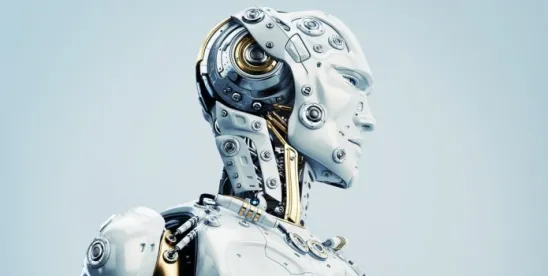The right to intellectual property protection in “Artificial Intelligence” generated work gives rise to numerous legal, economic and moral issues. “Artificial Intelligence” (AI) is a comprehensive term used to describe the ability of computer systems to perform tasks normally requiring human intelligence, ranging from translation processes and visual perception to brain simulation.
In this post, we give a brief introduction to the legal issues surrounding claims to copyright in AI generated work in the context of UK law and specifically, who can claim ownership of the work produced.
UK Copyright Law and AI
Traditionally the categories of work protected under UK copyright law includes: literary, musical, artistic, film, and sound recordings to name but a few. The term literary is taken to include computer programming work, such as that of AI. The general rule of copyright is that the first owner of copyright title will be the author (section 11(1) of the Copyright Designs and Patents Act 1988 (CDPA)). The author is defined as the person who creates the work, this is generally fairly straightforward to identify, for example the owners of copyright in a film are jointly the principal director and the film producer. For the aforementioned categories of work to qualify for protection under copyright the work must be “original” and must exhibit a degree of labour, skill or judgement. Most definitions of originality in case law require the input of a human author.
Conventionally the ownership of copyright in computer-generated works was not in question because the computer was merely a tool that supported the creative process of the human author. However, the development of AI technology to act autonomously without human input often does not require the input of a human author. Without a human author the work does not satisfy the requirement to be subject to copyright law (section 1(a) CDPA).
UK copyright law has tried to cover this point, section 178 of the CDPA acknowledges “computer-generated” works as work “generated by computer in circumstances such that there is no human author of the work”.
Section 9(3) then provides that the author of a computer-generated work is the person “by whom the arrangements necessary for the creation of the work are undertaken”.
Who owns the work?
The debate surrounding ownership of AI generated work predominantly takes a binary approach, as to whether it is the original programmer of the AI instrument that produced the work or if it is the user/supervisor of the AI instrument. This at least provides some clarity as to who is the person “by whom the arrangements necessary for the creation of the work are undertaken”. Many appear to support the original programmer as the human author and consequent copyright holder. Particularly when it comes to artificial intelligence algorithms that are capable of generating independent work often when the user’s contribution is the mere push of a button. Although the user will not always be subject to such simplistic procedures and could have a far more valid claim to authorship.
However the determination of the user or the computer programmer as the human author does not solve the forthcoming issue of AI generated work that is entirely independent of human contribution. As the technology develops and AI generated work becomes more autonomous it is becoming less and less clear as to who is the human author of the original work, if one even exists. This will present significant challenges for those trying to profit from AI produced work that they have invested in creating.




 />i
/>i
